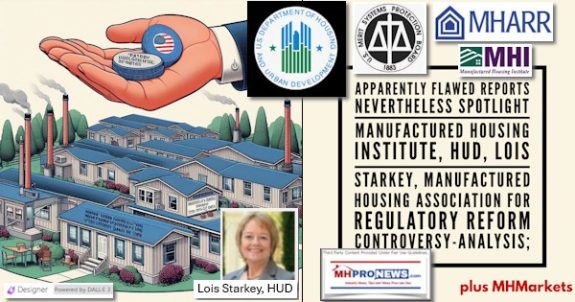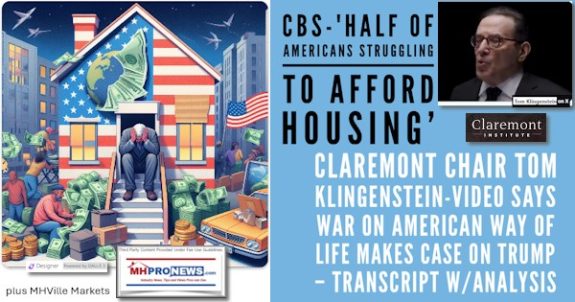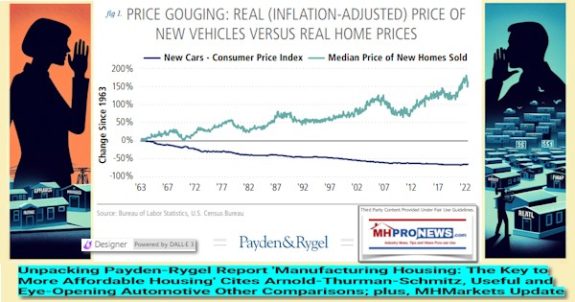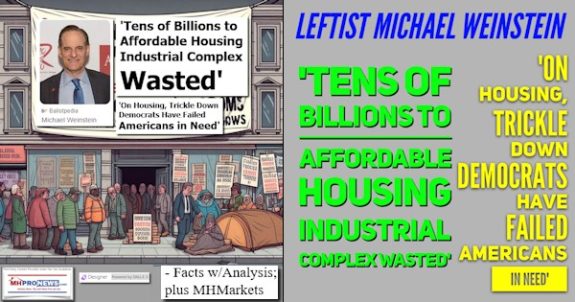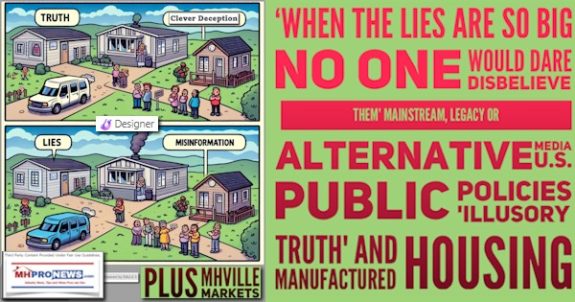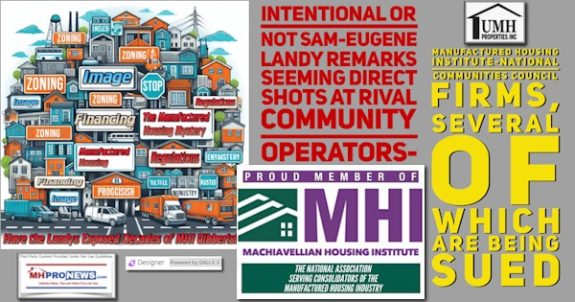Watt’s FHFA Confirmation Provides Potential to Expand Manufactured Housing Finance Options
On Tuesday by a 57-41 vote, the Senate confirmed Rep. Mel Watt (D-NC) to be the next director of the Federal Housing Finance Agency (FHFA). He becomes the first FHFA Director – which serves as conservator and regulator of Fannie Mae and Freddie Mac – since August 2009. Edward DeMarco has served in an acting capacity for more than four years. It is expected that Watt will be officially sworn in by the end of the week.
Originally nominated for the post in May, Watt’s nomination had been bogged down in the Senate by Republican objections over his lack of technical expertise in housing finance and his support of providing principal reductions to homeowners that are underwater on their mortgages. The recent changes in Senate rules, which now only require a simple majority to clear the chamber’s procedural requirements, cleared the way for Watt’s confirmation.
Watt will assume control of FHFA as both the Senate and House begin work on legislative measures to reform and eliminate Fannie Mae and Freddie Mac. However, Senate Banking Committee Chairman Tim Johnson (D-SD) has recently indicated that the Committee does not expect to complete work on draft legislation until sometime in 2014.
During his time serving on the House Financial Services Committee, Watt has been supportive of requirements imposed on the GSEs to support affordable housing. This has included support for provisions in the 2008 Housing and Economic Recovery Act (HERA; P.L. 110-289), which established that Fannie Mae and Freddie Mac had a Duty-to-Serve (DTS) underserved housing markets, including manufactured housing.
The DTS requirement, which has gone unimplemented during DeMarco’s tenure as acting director of FHFA, pushes the GSEs to establish new secondary market programs that increase access to credit for the purchase of manufactured housing, including providing secondary market access to manufactured home loans secured by personal property.
To date, FHFA has resisted implementing the DTS requirement as envisioned by Congress arguing that, to do so, would be an expansion of the GSEs current product offerings. DeMarco has staunchly fought any attempts to increase GSEs activities while the entities are under conservatorship.
With Watt’s elevation to FHFA Director comes an opportunity for the manufactured housing industry to urge, a now potentially sympathetic agency, to reconsider its past positions with respect to establishing secondary market access for home-only lending.
Through key Senate supporters, MHI has already placed the DTS issue on Watt’s agenda and will continue to push FHFA to fully enact this provision. In addition, MHI will continue its work in the larger GSE reform policy debate to push for broad access to manufactured home-only lending products.
CFPB Refuses Senate Request to Delay High-Cost Mortgage Rules for Manufactured Housing Market
In response to a November 9th letter from a bipartisan coalition of nearly a dozen Senators, including senior leaders to the Senate Banking Committee, the Consumer Financial Protection Bureau (CFPB) has indicated that it will be unwilling to provide any delay in implementing high-cost mortgage rules for the manufactured housing market or adjust the high-cost mortgage thresholds for manufactured home loans.
The letter from CFPB Director Richard Cordray states:
The final high-cost mortgage rule does provide more relaxed treatment for “smaller-sized manufactured home loans” that are secured by liens on personal property. The CFPB provided the same accommodation that Congress prescribed in this respect. In so doing, as in its approach to all of its rulemakings under title XIV of the Dodd-Frank Act, the Bureau has remained mindful of the need to ensure that regulations do not unduly restrict access to credit in any market, including manufactured housing.
The Bureau has met jointly with representatives from the manufactured housing industry and consumer advocates. Following that meeting, the Bureau requested additional data from a larger set of manufactured housing lenders to gain a more complete understanding of their concerns regarding the potential effects of this as well as other rules on the market for manufactured home loans. The Bureau will evaluate the information it receives, but it must not prejudge any future decisions. For that reason the Bureau has not committed, and cannot commit, to making any further modifications to the rules it has adopted.
During meetings conducted with CFPB officials, MHI was able to provide loan level data from the two leading (by volume) manufactured home lenders. The data represented nearly 35 percent of all manufactured home loans originated in 2012. From these originations alone, one-in-five of all manufactured home loans made in 2012 would fail the high-cost mortgage triggers.
The CFPB indicated that it needs more compelling data. In meetings with CFPB officials, MHI has communicated that the association – given its limited resources and capacity for extensive data collection and analysis – would be unable to comply with a lengthy data request. However, MHI urged the CFPB to use its vast resources and access to lenders (which it already regulates) across the nation, to facilitate collection of this data. So far, the CFPB has yet to take an active role in this regard.
MHI is in the process of developing a formal response to CFPB’s letter. In addition, MHI continues to work on introduction of Senate legislation to reform these triggers, and works to increase support for existing House legislation (H.R. 1779). Click here to view the letter.
For more information, contact Jason Boehlert at jboehlert@mfghome.org or (703) 558-0660.








